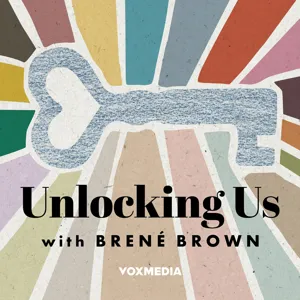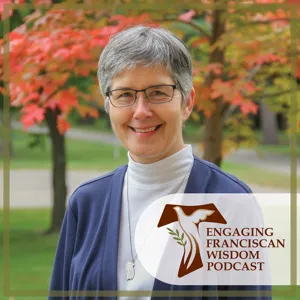Podcast Summary
Understanding Different Types of Power: Power can be defined as the ability to achieve purpose and effect change. It's not the nature of power itself that determines its impact, but rather how it's used. Four types of power are power over, power with, power to, and power within.
Power is a complex concept with the ability to both positively and negatively impact individuals and society. According to Brené Brown, power can be defined as the ability to achieve purpose and effect change. However, it's not the nature of power itself that determines its impact, but rather how it is used. Brown distinguishes between four types of power: power over, power with, power to, and power within. Leaders who wield power over believe that power is finite and must be hoarded and protected through fear. In contrast, leaders who use power with and power to view power as infinite and expanding when shared with others. During her conversation with Vice President Joe Biden, Brown focused on understanding his perspective on power. By asking questions that explored his use of power over, power with, power to, and power within, she gained valuable insights into his leadership style. This discussion highlights the importance of recognizing the different types of power and how they can be used to create positive change or perpetuate negative outcomes. Understanding power and its various forms is crucial for effective leadership and building strong, collaborative relationships.
Power with vs Power with: Different Approaches to Wielding Power: Power over dehumanizes and divides, while power with and power to foster unity, learning, and human value.
There are fundamentally different approaches to wielding power: power over, which aims to divide, destabilize, and devalue decency, and power with and power to, which aims to unite, stabilize, and value decency as a sign of respect. Power over maintains control through fear, uncertainty, and blame, while power with and power to foster a learning culture, transparency, and accountability. Power over dehumanizes and incites hatred and violence, while power with, power to prioritizes empathy and human value. Ultimately, the choice between these approaches lies in the belief about the finite or infinite nature of power and the goal of serving or being served.
Empowering Individuals and Building Coalitions: Effective leaders prioritize unity and consensus, empowering individuals and building coalitions to achieve common goals.
Effective leaders focus on empowering individuals and building coalitions rather than exerting power over others. During an interview on the "Unlocking Us" podcast, Vice President Biden shared his belief in the importance of unity and consensus in democracy, highlighting his choice of Kamala Harris as his running mate as an example of bringing together diverse perspectives. Throughout his career, Biden has emphasized the need to work with those who disagree and let go of grudges to achieve common goals. As a leadership expert, I've observed that successful teams and coalitions are essential for progress, and leaders who prioritize power within and power with are more likely to create lasting change.
Leading Effectively: Courage, Empathy, and Vulnerability: Effective leadership involves surrounding yourself with complementary team members, taking calculated risks, sharing credit, demonstrating vulnerability, and putting the enterprise before personal gain to build trust and strong relationships.
Effective leadership involves being personal, engaged, and empathetic towards others. It's about surrounding yourself with people who complement your strengths and understanding that character is built on a multitude of small actions. Being willing to take risks, share credit, and demonstrate vulnerability are essential for building trust and leading courageously. Good judgment and academic credentials do not always go hand in hand. Remember, trust is not built in one sweeping moment, but rather through a collection of small moments over time. Ultimately, being a leader requires understanding that there's something bigger than yourself and being willing to put the enterprise before personal gain. Courage, empathy, and vulnerability are the keys to leading effectively and building strong relationships.
Impact of kindness and empathy: Small acts of kindness can bring people together, create positive change, and make a significant impact on people's lives. Leading from the heart and serving others is a powerful way to make a difference.
Treating others with kindness and empathy, even in difficult situations, can make a significant impact on people's lives. The speaker shares an example from her childhood where she was taught to respond to mean words with kindness rather than retaliation. She emphasizes the importance of small acts of kindness in bringing people together and making them feel valued. The speaker also believes that leading from the heart and serving others is a powerful way to make a difference. She stresses the importance of keeping one's word and being reliable, even in the face of pressure. Overall, the message is that treating others with kindness and leading with empathy and authenticity can create positive change in the world.
Politicization of science and devolution of government impact COVID-19 response: Honesty, supporting science, and recognizing the value of a federal system are crucial for effective national response. Regionalism and reluctance to pay taxes hinder progress on critical projects.
The politicization of science and the devolution of government have led to a divisive and ineffective response to the COVID-19 pandemic and other national issues. The speaker emphasized the importance of being honest, supporting science, and recognizing the value of a federal system that makes up for each other's shortcomings. The trend towards regionalism and a reluctance to pay taxes at a national level has hindered progress on infrastructure and other critical projects. It's essential to remember that we build a stronger country when we work together and recognize the interconnectedness of our communities and our shared responsibility to support each other.
The Importance of Connection and Respect: Wearing masks protects others and is a patriotic act. Facing complex issues with courage can lead to a different ending. Treat everyone with respect and dignity.
Despite our neurobiological need for connection, there's a prevailing mythology of rugged individualism that can lead us to disregard each other's safety. This is evident in the current debate around mask-wearing and reopening businesses, which is often framed as a display of toughness or freedom. However, it's important to remember that wearing a mask is a patriotic act that protects others. Furthermore, as we navigate complex issues like racial history and enslavement, it's crucial to have the courage to face these stories and write a different ending. The speaker, a researcher and fifth-generation Texan, shares her personal experience growing up with racial segregation and the impact it had on her understanding of respect and dignity for all. Ultimately, the current crisis has served as a wake-up call for many, revealing the importance of treating everyone with respect and dignity.
Learning from history and current events: Exposure to historical truths and current events can foster empathy, understanding, and societal progress. Acknowledging past mistakes and learning from them is crucial for growth and preventing repeats.
Exposure to historical truths and current events can lead to liberation and understanding. The civil rights and voting rights acts were born out of nationally recognized injustices, and more recent events, like the death of George Floyd, have sparked global protests and conversations about systemic racism. Learning about past mistakes and acknowledging them is crucial for growth and preventing repeats. People often fear what they don't understand, but exposure can lead to empathy and acceptance. The American public tends to be more progressive on social issues than political leadership, and it's essential for leaders to follow the people's lead. Ultimately, being open to learning about history and current events can lead to a more informed and accepting society.
The Importance of Connection and Vulnerability: Embrace vulnerability to build meaningful relationships and create a more empathetic world, despite the challenges of bullying and technology.
Despite the challenges of dealing with bullies and the insular nature of technology, it's important to prioritize connection and vulnerability. The speaker, who grew up as a target of bullies, learned that most bullies are insecure and that fear can be contagious. He also emphasized the importance of exposure and understanding different perspectives, which can lead to connection and empathy. Technology, while providing a wider aperture to the world, can also lead to depersonalization and distance. To counteract this, it takes courage to show up and connect with people in person. A simple moment of joy for the speaker is watching his children embrace and kiss each other. He also cherishes Italian food, particularly spaghetti with arribiati sauce and chicken Parmesan. On his nightstand, he keeps pictures of his family, including his mom and dad, and his sons holding their sister when she was born. Overall, the speaker's message is that despite the difficulties, it's essential to prioritize connection and vulnerability to build meaningful relationships and create a more empathetic world.
Maintaining Democracy: Listen, Compromise, and Work Towards Consensus: Maintain democracy by listening, compromising, and working towards consensus. Women's roles are crucial, power should serve, not dominate, and resist power over. Vote, fight for a better future, and stay courageous, brave, and kind.
Democracy is not a given and requires constant effort to maintain. As Vice President Joe Biden emphasized, it's essential to listen to each other, compromise, and work towards consensus. The institutions of democracy matter, and without them, progress becomes impossible. Women's roles in society are crucial, and their full integration is necessary for survival. Power, whether held by white men or anyone else, should not be used to dominate but to serve. The last 4 years have shown us the dangers of power over, and it's essential to be aware of this trend and resist it. The bravery to fight for a better future resides in all of us, and it's being summoned now. Remember, make a voting plan, think about what you want for yourself and your community, and stay courageous, brave, and kind.
Exploring the Vox Media Podcast Network: The Vox Media Podcast Network is a diverse hub for high-quality, thought-provoking content on various topics. Discover your next favorite podcast at podcast.voxmedia.com.
We are proud to be part of the Vox Media Podcast Network, which hosts a diverse array of award-winning shows. This network is a hub for high-quality, thought-provoking content on various topics. To explore and discover more shows, visit podcast.voxmedia.com. This platform offers a rich listening experience, with podcasts that cover a wide range of subjects and perspectives. Whether you're interested in news, culture, technology, or entertainment, there's something for everyone in the Vox Media Podcast Network. So, if you're looking for your next favorite podcast, be sure to check it out!






